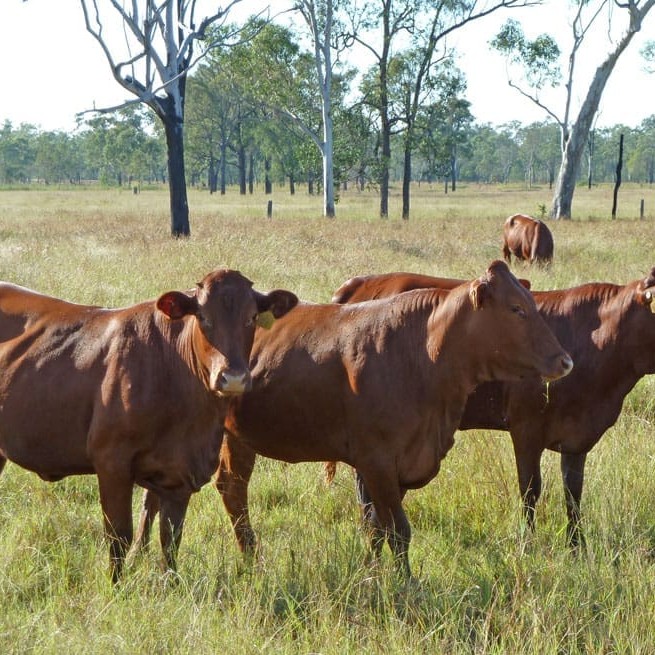 Scientists at the University of Queensland are pressing ahead with development of two advanced vaccines that promise to save the northern Australian cattle industry more than $340 million a year from the ravages of pestivirus, three-day sickness, tick fever, and the direct parasitic impact of ticks.
Scientists at the University of Queensland are pressing ahead with development of two advanced vaccines that promise to save the northern Australian cattle industry more than $340 million a year from the ravages of pestivirus, three-day sickness, tick fever, and the direct parasitic impact of ticks.
Senior researcher at Queensland Alliance for Agriculture and Food Innovation Dr Neena Mitter, along with partners at the Australian Institute for Bioengineering and Nanotechnology will lead an international team to deliver a powerful new vaccine which is expected to slash the incidence of three cattle diseases which cost Australian producers more than $200 million annually.
Meanwhile her QAAFI colleague, senior researcher Dr Tim Mahony, is heading another team working on a polymer-based solution to combat cattle tick infestation, which costs the Queensland cattle industry an estimated $140 million a year.
Both approaches are on the scientific frontline and considered to be among the ‘next generation’ of animal health solutions, a UQ/QAAFI press release issued yesterday said.
Dr Mitter’s $3.8 million nanotechnology-based vaccine project is the culmination of several years’ research by herself, AIBN and Queensland government scientists, Pfizer Animal Health Australia and Washington State University.
She said the “blue sky” aim of the research was to create a new scientific paradigm, delivering immunity to more than one disease in a single formulation.
 “The aim is to demonstrate the world's first platform for nano-vaccine delivery for a single dose – that’s also stable at room temperature,” Dr Mitter said.
“The aim is to demonstrate the world's first platform for nano-vaccine delivery for a single dose – that’s also stable at room temperature,” Dr Mitter said.
The goal is to create a vaccine that will target three major animal-health problems: bovine viral diarrhoea virus (BVDV), bovine ephemeral fever (BEF) and tick fever (Anaplasmosis).
Collectively these conditions are estimated to cost Queensland's $3.4 billion cattle industry about $200 million each year.
“We plan to create a vaccine that doesn’t require any additional agent to be effective,” Dr Mitter said.
Potential benefits include a major reduction in loss of income due to the impact of the disease and in the cost of vaccination.
Solving the cattle tick problem
Dr Mahony said cattle tick infestation currently cost the Queensland economy about $146 million a year and his polymer-based anti-tick vaccine would be developed to work in line with current industry management practices to ensure greater uptake.
“Industry practices need to be considered when developing vaccines to ensure broad adoption,” he said.
Many northern beef industry enterprises only mustered their cattle once or twice a year due to costs, distance and seasonal factors. As most cattle vaccines require two or more doses to be effective, that could make it difficult to apply in extensive cattle operations.
“As a result, a safe and effective single-dose anti-tick vaccine could save the industry more than $140 million a year,” Dr Mahony said.
By exploiting unique delivery platforms in nano-technology and polymer science – and working closely with collaborators from UQ and the Department of Agriculture, Fisheries and Forestry (DAFF) – QAAFI researchers expect to deliver major benefits for the cattle industry. Some of these include:
- Reducing the cost of vaccination through a single dose, annual treatment, and reduced management costs
- Reducing the cost of refrigeration with shelf-stable vaccines; elimination of cold-chain storage (14pc of vaccine cost), reduced carbon footprint, increased export potential
- Adding value to Australia’s $3.1 billion export potential through a ‘cleaner, greener’ image, improved animal welfare outcomes and best-practice adoption
- Increasing the manufacturing potential – Queensland based opportunities
- Reduced usage of pesticides and chemicals in primary industries, with associated cost savings.
Queensland scientists have already established a solid track-record in the development of cattle vaccines. The Queensland Government has leveraged its previous investment in nano-vaccine research with a $1 million grant to move both projects forward.
QAAFI, AIBN and Queensland Government scientists will partner with high-profile collaborators such as Pfizer Animal Health, Washington State University, the CRC for Polymer Technologies, the University of Melbourne, Swinburne University of Technology and Virbac Australia.
Queensland’s minister for science and innovation, Ros Bates said the projects had all been carefully considered for their practical application and their ability to keep Queensland at the forefront of global research and development in the livestock field.



HAVE YOUR SAY